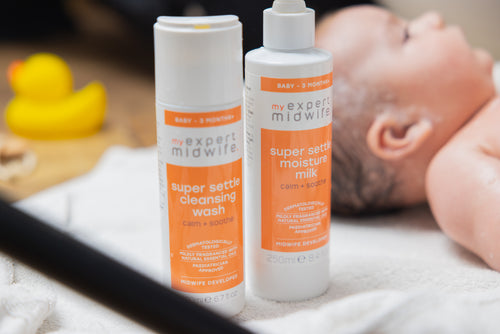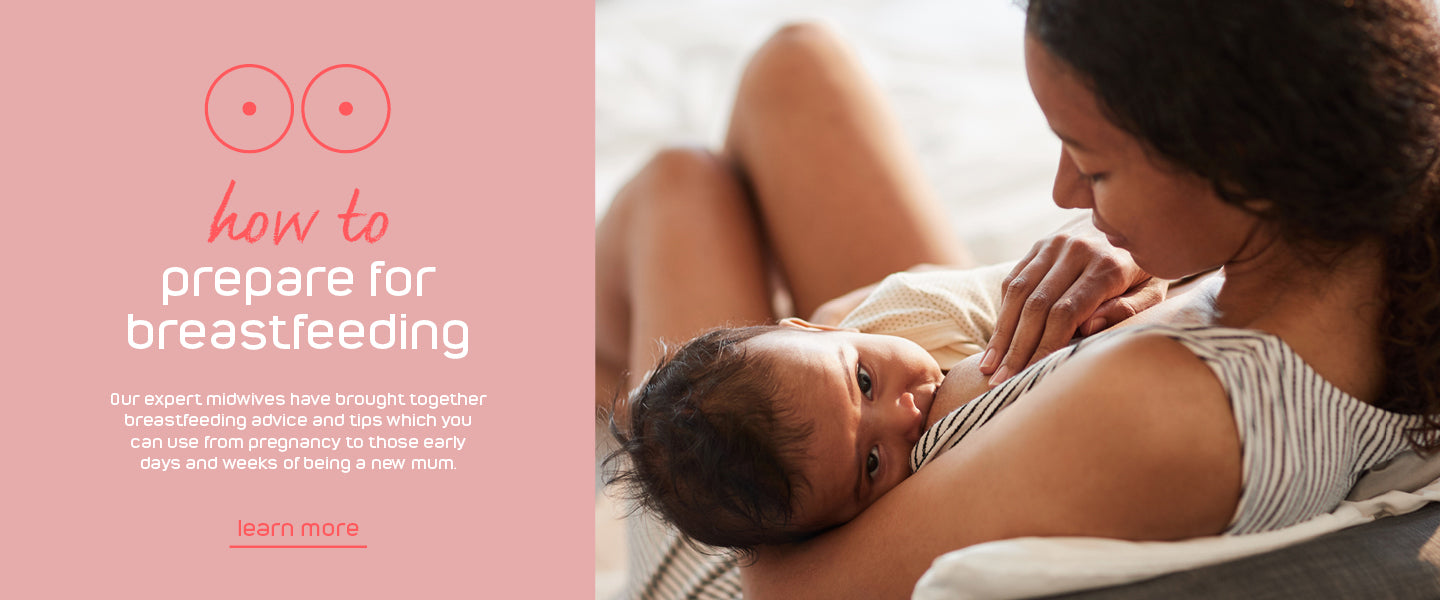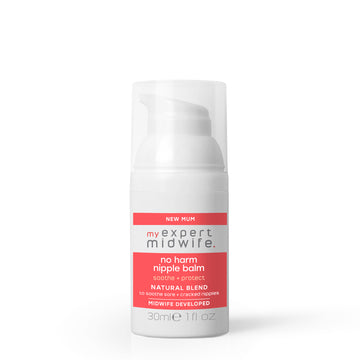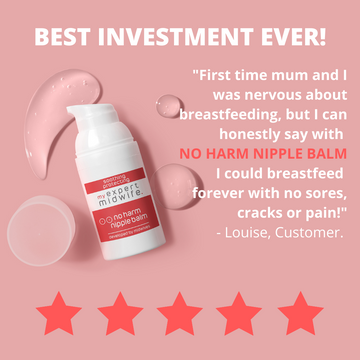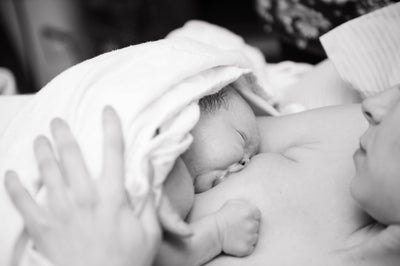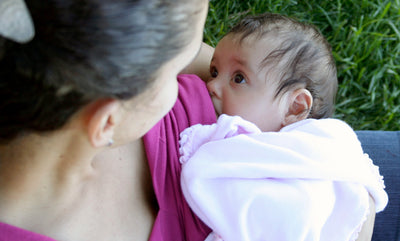Breastfeeding can be extremely rewarding, but during those early days, some women may encounter problems. Our expert midwives have brought together breastfeeding advice and tips which you can use from pregnancy to those early days and weeks of being a new mum, helping you to feel like you again.
Breastfeeding benefits are numerous for both mother and baby. Breastmilk has amazing properties - it’s not just food, it’s medicine! It provides the ideal nutrition for your baby and can also reduce the risk of mothers developing certain health conditions.
- Breast milk helps keep your baby safe against diseases and infections
- It provides natural benefits for mothers
- Breast milk is readily available for the baby whenever they need to feed
- It can help mother and baby build a strong emotional bond
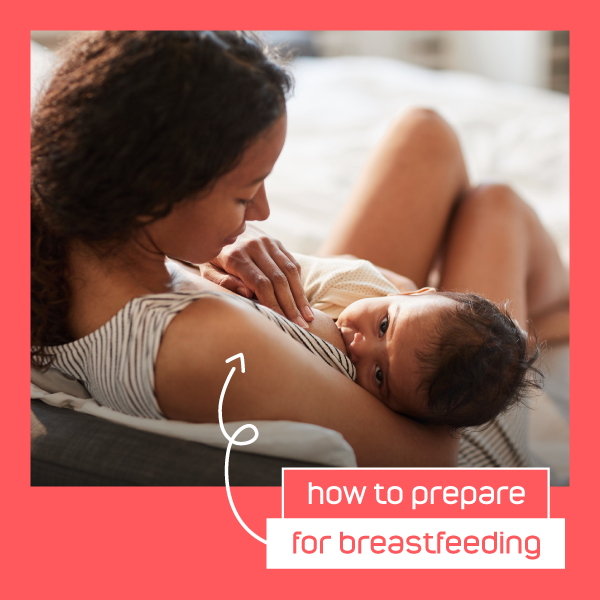
We live in a society that has only recently started to accept that breastfeeding in public should be ‘allowed’ and women can still encounter problems breastfeeding their babies in public. Because of this, we are not used to seeing breastfeeding as a normal part of life and therefore miss out on the learning opportunities to watch others doing it before we have our own babies to breastfeed.
At My Expert Midwife, we want to provide you with useful tools and information to overcome possible challenges in the early days of breastfeeding.
The first hour after birth can often be when your baby is most receptive to feeding. Try to get uninterrupted skin to skin time to help this process.
Ask family members and friends who breastfed to share their stories about what worked and didn’t work for them so you can try different techniques.
Buy a good book to read about breastfeeding or access information online.
Purchase a good nipple balm, such as our No Harm Nipple Balm, to soothe sore and cracked nipples.
Find local breastfeeding support groups, such as Baby Café and La Leche League. They will be happy for you to attend their groups before your baby is born so you can chat with other breastfeeding mums and visualise breastfeeding techniques.
Ask your local maternity hospital what breastfeeding help they offer. They may have some extra classes which you can attend or they might be able to signpost you towards helpful breastfeeding resources and the latest information regarding feeding.
Choose your maternity care provider carefully. Different hospitals have higher or lower rates of breastfeeding depending on how much they invest in training their maternity staff. Your midwife will tell you more about their individual ‘baby friendly’ status and their breastfeeding rates.
Make a birth plan and make sure you add into it that you want uninterrupted skin to skin until the baby has their first breastfeed. The first hour after birth can often be when your baby is most receptive to feeding.
Don’t panic if your baby doesn’t feed straight away. Every baby is different, but most babies’ energy supplies are designed so they can cope easily on smaller regular feeds of high energy colostrum until your milk comes in. It’s the way nature intended it to be from the beginning of time and it hasn’t changed in the 21st century!
How to breastfeed: step-by-step
- Wash your hands thoroughly before you begin
- Sit in a comfortable position
- Hold your baby close to your body, with their nose next to your nipple
- Support your baby’s neck and shoulders with the crook of your arm
- Let your baby’s head tilt back slightly so their top lip can brush against your nipple. This will help their mouth open wide
- When your baby’s mouth opens, their chin should be touching your breast first, with their head tipped back so their tongue can comfortably reach your breast
- Once the baby has latched on, check that more of the darker nipple skin is visible above your baby’s top lip than below their bottom lip
- You’ll notice your baby’s cheeks look full while feeding
For more information on how to prepare for breastfeeding, how to breastfeed and the best breastfeeding positions purchase our breastfeeding webinar.
In modern society, breastfeeding can often be perceived as difficult and something we don’t know enough about. This is partly because we don’t observe babies being openly fed in society as often as we should. The result is a population of women who need to ‘learn’ breastfeeding, often from square one, once their baby has been born.
As well as needing to learn how to breastfeed, problems can often be encountered after a long labour, surgical birth or sleepless nights which seem difficult to tackle with a tired and emotional mind. Therefore, it is good to be prepared with useful tools and information that can help you to overcome possible challenges in the early days.
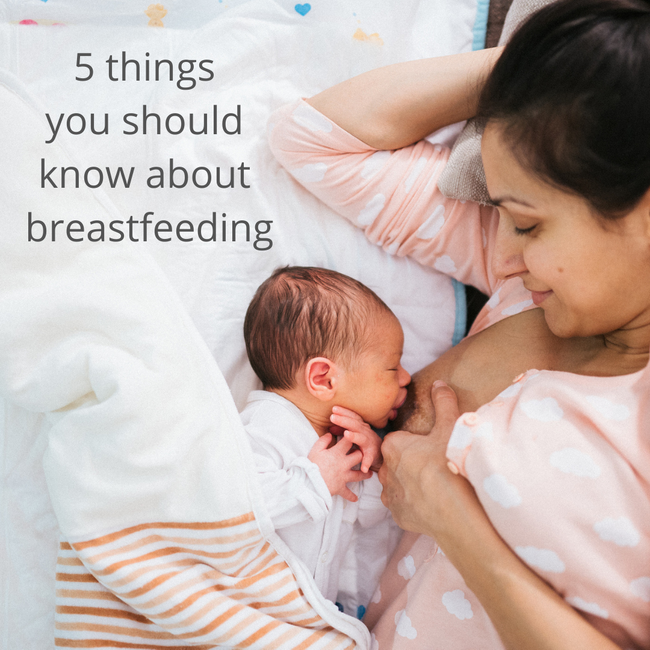
Breastfeeding may seem that it is not working properly in the first few days and weeks after birth. When breastfeeding doesn’t go smoothly it can be easy to feel like you have failed or give up even if you wanted to breastfeed for longer. But many breastfeeding difficulties such as baby not latching effectively, feeding very frequently or not gaining weight quickly enough are not problems, they are just short periods where you need extra input and advice to provide you with a plan to help you resolve them.
We offer an on demand webinar on overcoming the challenges of breastfeeding, delivered by one of our Registered Midwives and Antenatal Teachers, where we discuss how to overcome any challenges you may encounter along your breastfeeding journey.
Learning how to express breastmilk during pregnancy may help you to collect enough milk to freeze and use during the early days after the birth whilst breastfeeding is established. Equally, if you don’t collect any colostrum (the first milk), it will enable you to feel more confident about handling and learning how your breasts work to provide milk for your baby. Learn more abouthow to harvest colostrumhere.

Your baby can feed when they want to whilst you remain able to do other things and move around during feeding times. It can take a little time to get used to wrapping and carrying your baby around but there are lots of videos available to help you. Baby carriers are not just for transporting your baby when you are out and about, use them indoors too, so your baby can feed when they want to, as well as be comforted by being close to you.La Leche Leagueprovides guidance surrounding the benefits of babywearing and how to do this safely.
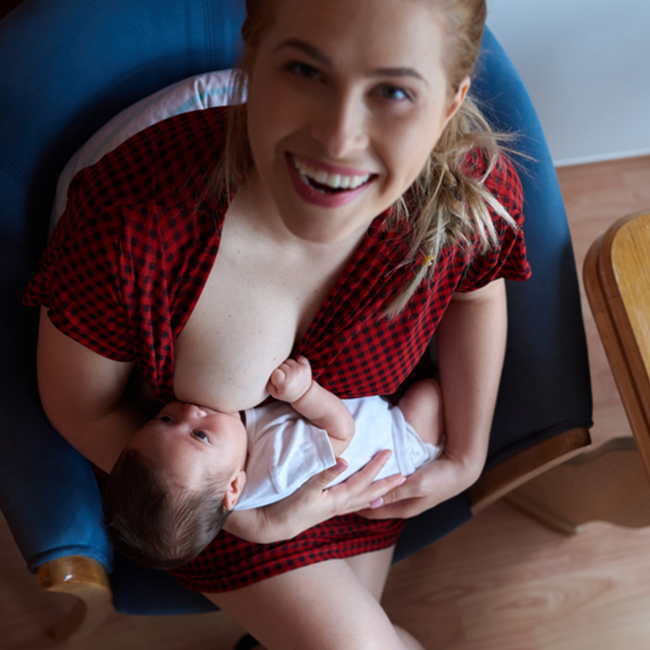
A bra that doesn’t fit properly can restrict milk flow and cause your breasts to become uncomfortable and even contribute to blocked milk ducts and/or mastitis (sore and inflamed breast tissue).
The same goes for tight or restrictive clothes. Make sure your bra fits well and is supportive and that your clothes are loose and preferably made from natural fibres such as cotton, wool or silk so your body can breathe.

A baby may be diagnosed with a tongue-tie if their frenulum has formed in a way that restricts or changes the movement their tongue has in their mouth. The frenulum is the piece of skin that anchors the tongue to the bottom of the mouth. In some babies, it may extend towards the tip of the tongue more than normal or it could be thicker and more restricting where it is joined.
Many babies who have a tongue-tie will be able to breastfeed without you or them experiencing issues, so the current advice is to monitor feeding before considering separating the tongue-tie. If needed, tongue-tie separations can be performed by a specialist practitioner, during a quick outpatient procedure. Learn more about how to treat tongue ties.
Is it painful to breastfeed?
Some women can experience pain during breastfeeding. This can and is often due to latch and attachment difficulties when feeding. Engaging support here is key and can make a really positive impact on helping you to resolve any issues and give you helpful support for different positions. Ask your midwife for support or for her to signpost you to local resources available in your area.
How to ease sore nipples when breastfeeding
If you’re suffering from sore or cracked nipples, invest in a nipple balm designed to soothe and protect your nipples while breastfeeding. Ideally, you want a nipple balm you don’t have to remove before breastfeeding. Our multi-award winning No Harm Nipple Balm is 100% naturally derived, intensely moisturising, doesn’t need to be wiped off before feeding and is safe to use from day one of breastfeeding. While nipple balms will help ease breastfeeding pain, and some will help to soothe any dryness and cracks, the root cause of this pain should be identified.
How long does the average mother breastfeed?
The world health organisation recommends that babies should be exclusively breastfed until 6 months. In the UK over 80% of mothers begin breastfeeding after the birth but this falls to 55% who are still breastfeeding six weeks after the birth. Many women say they stopped their breastfeeding journey sooner than they planned to, this is why it is really beneficial to seek support for feeding problems sooner rather than later to help address any problems encountered.
Should I squeeze my breast while breastfeeding?
It is not recommended that you squeeze your breast whilst feeding. This may not only cause you unnecessary pain but also contribute towards restricting milk flow which can lead to blocked milk ducts or mastitis.
How long does a woman produce milk after giving birth?
This usually depends on how long the breast is stimulated for. Breast milk production is controlled by hormones and the more a baby feeds, or the more you express, the more milk your breasts will make to meet this demand. Once you stop breastfeeding and expressing the demand is no longer there so the production of hormones and milk reduces and usually stops, although some women may continue to produce small amounts for some time afterwards.
Can you drink alcohol while breastfeeding?
There is no evidence that low levels of alcohol consumption whilst breastfeeding is harmful to your baby. The NHS recommend that levels should not exceed 14 units per week and be spread evenly over this time- this includes advice whilst breastfeeding. The advice is not to bed share with your baby if you have been drinking alcohol due to the increased risks of sudden infant death syndrome (SIDS).
What should I avoid eating while breastfeeding?
There are not any foods that you should avoid whilst breastfeeding, rather it is more important to ensure you are eating a balanced diet which will provide you with the nutrition you need for yourself and to provide breastmilk for your baby. Your body also needs to recover and heal after pregnancy and birth, so ensure your diet includes nutrient dense foods such as fresh fruit and veg, nuts and seeds and protein sources found in fish, lean meats and tofu.
At what age is breastfeeding no longer beneficial?
Breastfeeding has benefits for however long you choose to do it for. Although once your child has weaned onto solid food this will provide them with another source of nutrients for their growth and development. Breastfeeding after weaning can continue to provide your baby with antibodies and provide psychological benefits such as helping with bonding and the mother and baby relationship.
